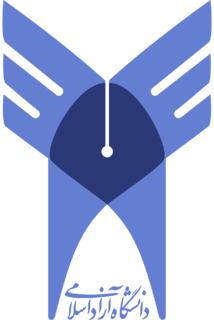Enterprise application integration (EAI) is the use of software and computer systems' architectural principles to integrate a set of enterprise computer applications.
Tuxedo is a middleware platform used to manage distributed transaction processing in distributed computing environments. Tuxedo is a transaction processing system or transaction-oriented middleware, or enterprise application server for a variety of systems and programming languages. Developed by AT&T in the 1980s, it became a software product of Oracle Corporation in 2008 when they acquired BEA Systems. Tuxedo is now part of the Oracle Fusion Middleware.
SIGKDD, representing the Association for Computing Machinery's (ACM) Special Interest Group (SIG) on Knowledge Discovery and Data Mining, hosts an influential annual conference.

The Web Conference is a yearly international academic conference on the topic of the future direction of the World Wide Web. The first conference of many was held and organized by Robert Cailliau in 1994 at CERN in Geneva, Switzerland. The conference has been organized by the International World Wide Web Conference Committee (IW3C2), also founded by Robert Cailliau and colleague Joseph Hardin, every year since. The conference's location rotates among North America, Europe, and Asia and its events usually span a period of five days. The conference aims to provide a forum in which "key influencers, decision makers, technologists, businesses and standards bodies" can both present their ongoing work, research, and opinions as well as receive feedback from some of the most knowledgeable people in the field.

The Digital Classicist is a community of those interested in the application of digital humanities to the field of classics and to ancient world studies more generally. The project claims the twin aims of bringing together scholars and students with an interest in computing and the ancient world, and disseminating advice and experience to the classics discipline at large. The Digital Classicist was founded in 2005 as a collaborative project based at King's College London and the University of Kentucky, with editors and advisors from the classics discipline at large.
Volunteer computing is a type of distributed computing in which people donate their computers' unused resources to a research-oriented project.
Python Paste, often simply called paste, is a set of utilities for web development in Python. Paste has been described as "a framework for web frameworks".
The Association for Recorded Sound Collections (ARSC) is a nonprofit organization dedicated to the preservation and study of sound recordings. Established in 1966, members include record collectors, discographers, and audio engineers, together with librarians, curators, archivists, and researchers.
The ACM Conference on Human Factors in Computing Systems (CHI) series of academic conferences is generally considered the most prestigious in the field of human–computer interaction and is one of the top-ranked conferences in computer science. It is hosted by ACM SIGCHI, the Special Interest Group on computer–human interaction. CHI has been held annually since 1982 and attracts thousands of international attendees. CHI 2020, which was originally planned to take place on April, was cancelled due to COVID-19, and CHI 2021 will be held online as a virtual conference chaired by Yoshifumi Kitamura and Aaron Quigley. CHI 2021 “making waves, combining strengths” was originally scheduled to take place in Yokohama.
XLDB is a yearly conference about databases, data management and analytics. The definition of extremely large refers to data sets that are too big in terms of volume, and/or velocity, and/or variety to be handled using conventional solutions. This conference deals with the high-end of very large databases (VLDB). It was conceived and it is chaired by Jacek Becla.
The Federated Computing Research Conference, FCRC, is an event that brings together several academic conferences, workshops, and plenary talks in the field of computer science. FCRC has been organised in 1993, 1996, 1999, 2003, 2007, 2011 and 2015. The 2019 event will be held in Phoenix, Arizona.

Live distributed object refers to a running instance of a distributed multi-party protocol, viewed from the object-oriented perspective, as an entity that has a distinct identity, may encapsulate internal state and threads of execution, and that exhibits a well-defined externally visible behavior.

Rack is a modular interface between web servers and web applications developed in the Ruby programming language. With Rack, application programming interfaces (APIs) for web frameworks and middleware are wrapped into a single method call handling HTTP requests and responses.
Oracle WebLogic Server is a Java EE application server currently developed by Oracle Corporation. Oracle acquired WebLogic Server when it purchased BEA Systems in 2008.
A computer security conference is a convention for individuals involved in computer security. They generally serve as meeting places for system and network administrators, hackers, and computer security experts.
SEMAT is an initiative to reshape software engineering such that software engineering qualifies as a rigorous discipline. The initiative was launched in December 2009 by Ivar Jacobson, Bertrand Meyer, and Richard Soley with a call for action statement and a vision statement. The initiative was envisioned as a multi-year effort for bridging the gap between the developer community and the academic community and for creating a community giving value to the whole software community.
Middleware is a type of computer software that provides services to software applications beyond those available from the operating system. It can be described as "software glue".

The Islamic Azad University, Zanjan Branch is a private research university in Zanjan, Iran.
The International Conference on Distributed Event-Based Systems is a conference in computer science.
CyberGIS, or cyber geographic information science and systems, is an interdisciplinary field combining cyberinfrastructure, e-science, and geographic information science and systems (GIS). CyberGIS has a particular focus on computational and data-intensive geospatial problem-solving within various research and education domains. The need for GIS has extended beyond traditional forms of geographic analysis and study, which includes adapting to new sources and kinds of data, high-performance computing resources, and online platforms based on existing and emerging information networks. The name cyberGIS first appeared in Geographic Information Science literature in 2010. CyberGIS is characterized as digital geospatial ecosystems. These systems are developed and have evolved through heterogeneous computing environments, as well as human communication and information environments. CyberGIS can be considered a new generation of geographic information systems (GIS). These systems are based on advanced computing and information infrastructure, which analyze and model geospatial data, providing computationally intensive spatial analysis, modeling, and collaborative geospatial problem-solving at previously unprecedented scales.




